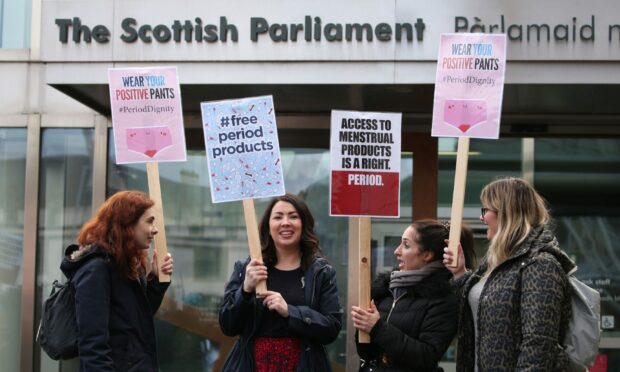Menstrual health campaigner Monica Lennon is calling for more research on women’s health issues – including period changes during the pandemic.
More than 4,000 women in the UK say their periods have been disrupted following their Covid-19 jab.
Symptoms reported to the government’s medicine watchdog include heavy, late and painful bleeding.
However, in response to a question from Ms Lennon, Women’s Health Minister Maree Todd said the current evidence “does not suggest an increased risk” of menstrual disorders or unexpected bleeding.
Ms Todd confirmed the number of reports is “low in relation to both the number of females who have received Covid-19 vaccines to date and the background rate of menstrual disorders generally”.
She added that the Medicines and Healthcare Products Regulatory Agency (MHRA) will “continue to closely monitor reports of suspected menstrual disorders and vaginal bleeding with COVID-19 vaccines”.
‘Many anecdotal reports’
Ms Lennon said there have been “many anecdotal reports” of changes to menstrual cycles throughout the pandemic, with some attributed to stress and lifestyle changes during lockdown.
The period poverty campaigner, who led the campaign to provide free period products across Scotland, said: “More recently women have been querying potential links between Covid-19 vaccines and menstrual changes.
“It’s really important that women and people who menstruate have access to reliable advice and information and that any reported side effects are properly researched.
“While there is no current available evidence to suggest the vaccine or the virus increases the risk of menstrual disorders, it is important that anyone who is concerned can get timely access to their GP.
“Menstrual health was given scant attention before the pandemic and knowledge of perimenopause or menopause symptoms remains patchy.
“Generally, there is a lack of research on women’s health so it’s important that any opportunity to discuss menstruation and menopause is not missed.”

